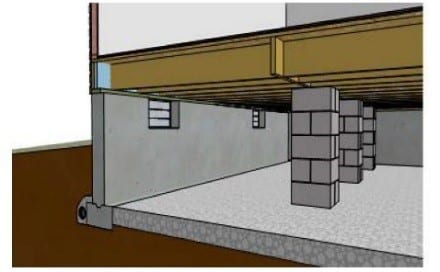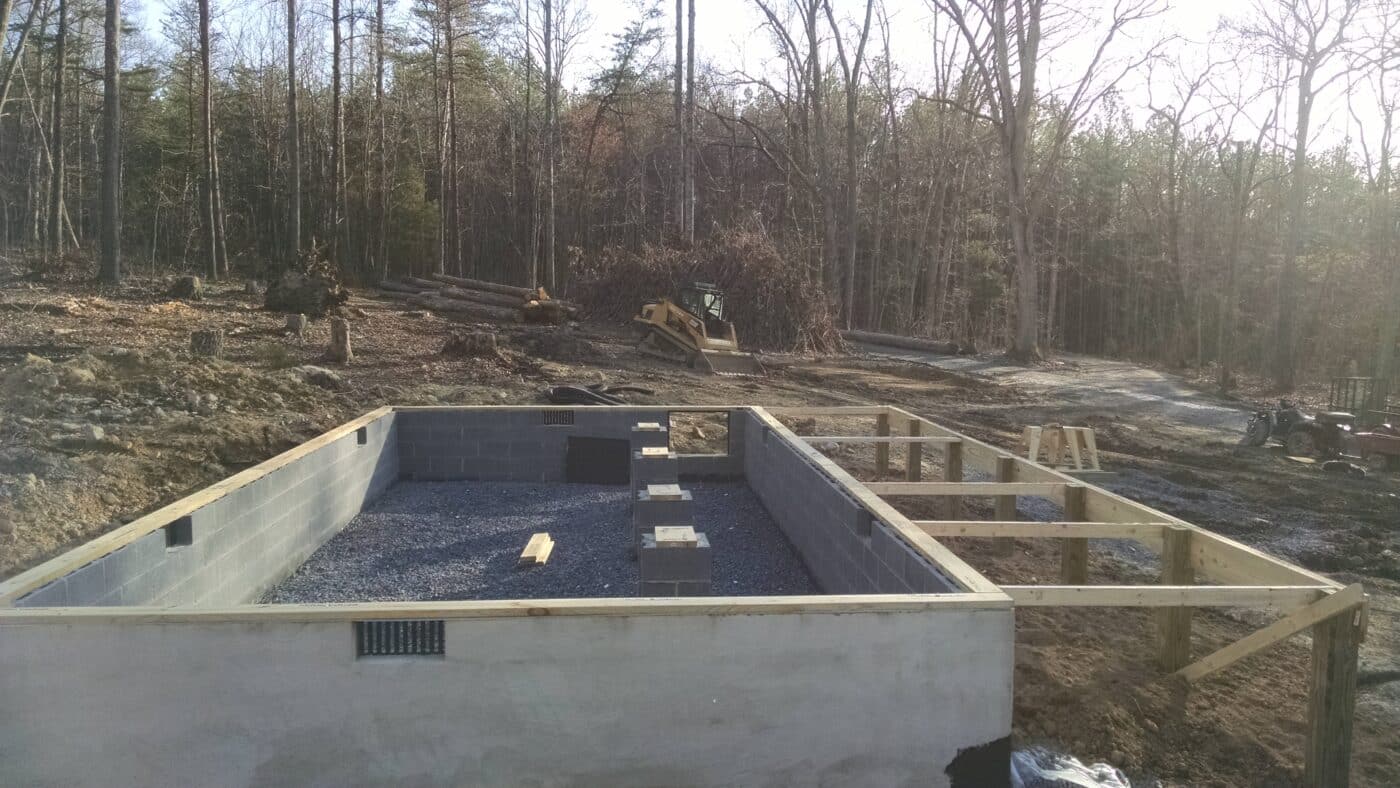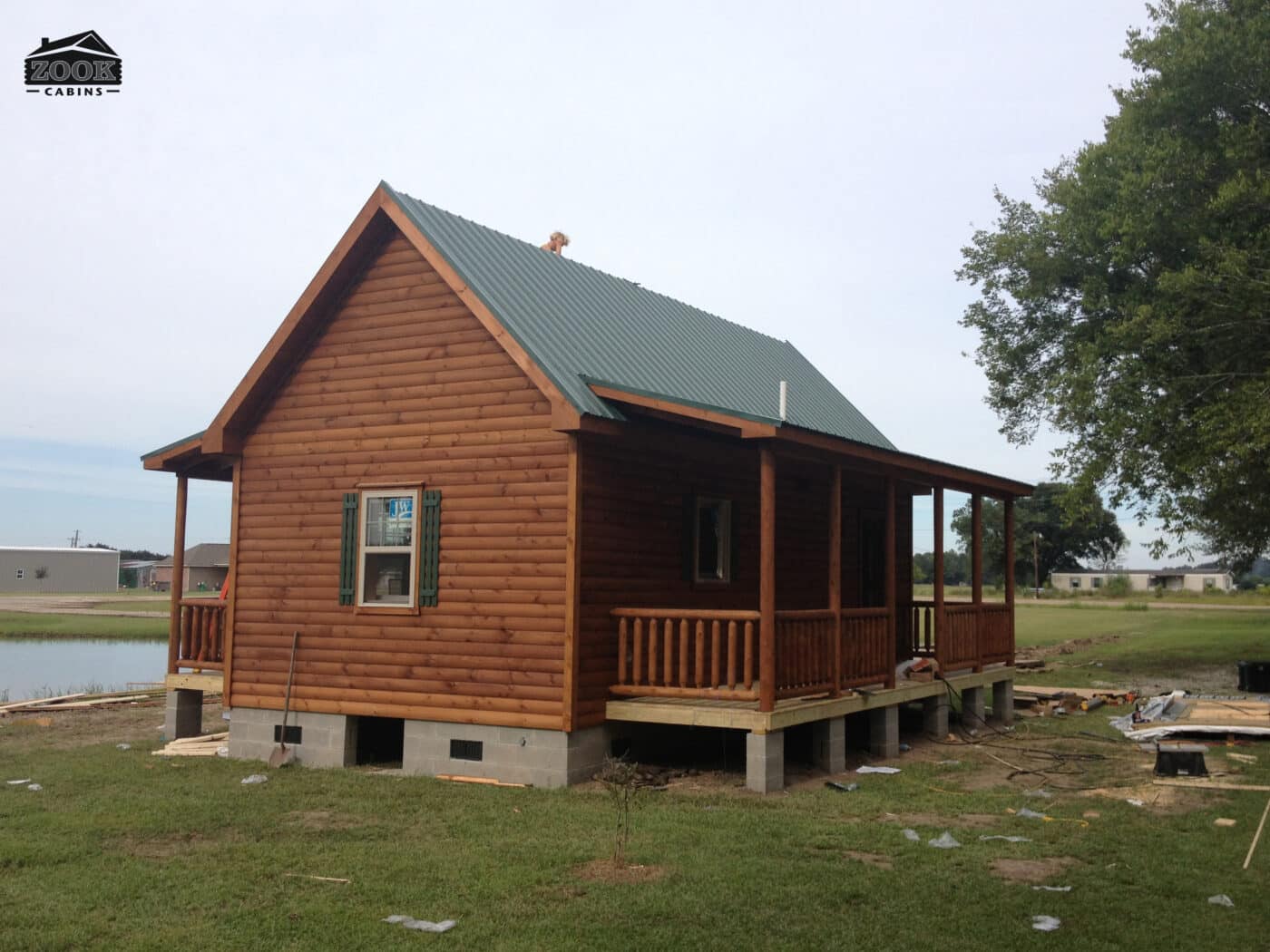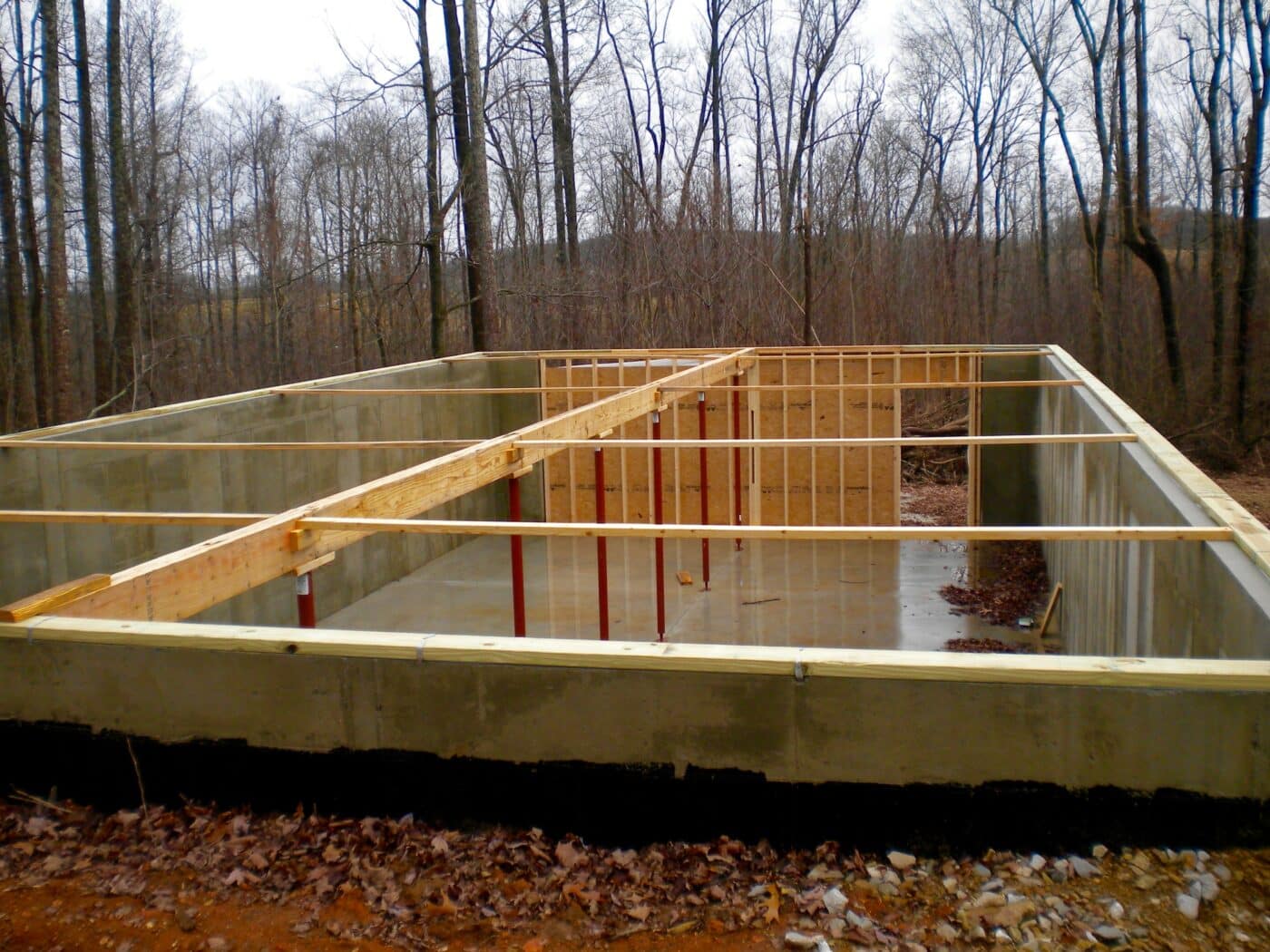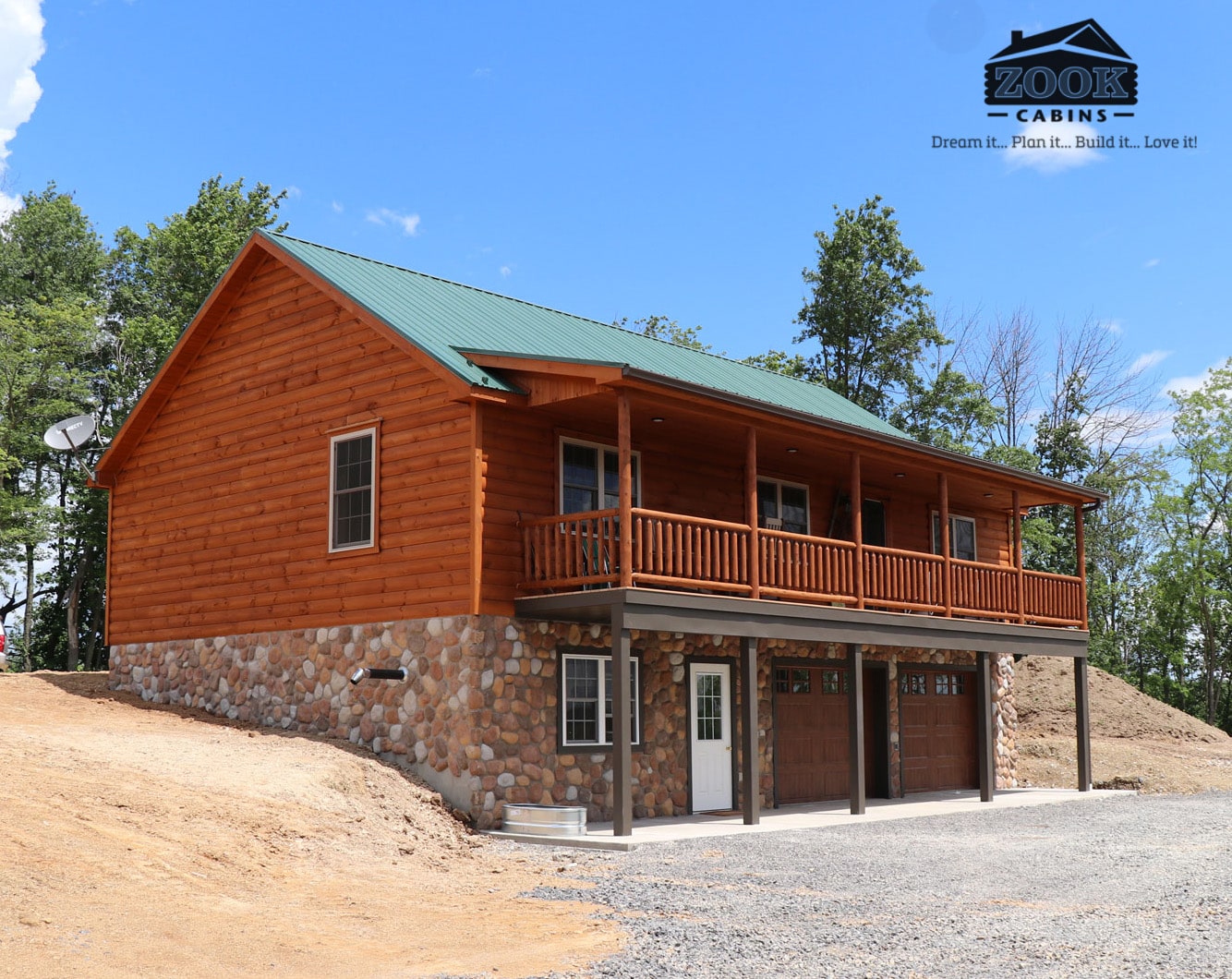DWELL BEYOND THE ORDINARY
Certified Modular Home Foundation
A certified modular home foundation is a vital element in the construction of modular homes, assuring both safety and structural integrity. This specialized foundation serves as the base on which the modular home sections are assembled, providing a stable and level platform for the structure. It undergoes a rigorous certification process to meet industry standards and local building codes, ensuring that it can support the weight and structure of the modular home. A certified modular home foundation is inspected, approved, and verified by experts to ensure it meets all necessary specifications. Having certified modular home foundation options not only guarantees the durability of your home but also contributes to its long-term value and peace of mind for homeowners.
What Is The Best Foundation For A Modular Home?
A crawl space foundation is a popular choice for modular homes due to its cost-effectiveness and simplicity. This type of modular home foundation involves creating an open space beneath the home, allowing for access to utilities and ventilation while providing some elevation from the ground. Crawl space foundations are particularly well-suited for modular homes in areas with stable soil conditions and mild climates, offering an economical alternative to a full basement.
Modular Home Crawl Space Foundation Model
A crawl space foundation is a popular choice for modular homes due to its cost-effectiveness and simplicity. This type of modular home foundation option involves creating an open space beneath the home, allowing for access to utilities and ventilation while providing some elevation from the ground. Crawl space foundations are particularly well-suited for modular homes in areas with stable soil conditions and mild climates, offering an economical alternative to a full basement.
| Pros of Crawl Space Foundation | Cons of Crawl Space Foundation |
| Cost-Effective: Crawl space foundations are generally more affordable than full basements. | Limited Storage: Crawl spaces have limited space for storage compared to basements. |
| Accessibility: They provide easy access to utilities, making repairs and maintenance straightforward. | Moisture Issues: Without proper ventilation and insulation, crawl spaces can be susceptible to moisture problems and pests. |
| Elevation: Crawl spaces elevate the home slightly, which can help protect against moisture and pests. | Temperature Control: Crawl spaces are less insulated than basements, making them less energy-efficient. |
| Suitability: Crawl spaces can be used in a wider range of soil and environmental conditions. | Not Suitable for All Sites: In areas with high water tables, crawl spaces may not be a suitable foundation choice. |
| Energy Efficiency: They can provide some insulation benefits, though not as significant as basements. | Access Challenges: Limited accessibility for repairs or renovations, particularly in low crawl spaces. |
Modular Home Full Basement Foundation Model
A full basement foundation is a more comprehensive modular home foundation option, specifically designed to cater to the unique requirements of modular homes. It provides additional living or storage space beneath the home and is often preferred in regions with harsh climates, as it offers better insulation and protection against extreme weather conditions. Full basements are spacious and versatile, making them an attractive choice for homeowners who require extra room for various purposes within their modular home.
| Pros of Full Basement Foundation | Cons of Full Basement Foundation |
| Extra Space: It provides additional usable living or storage space, which can be valuable for homeowners. | Higher Cost: Basement foundations are typically more expensive to construct than crawl spaces. |
| Insulation: Basements are generally well-insulated, providing better temperature control and energy efficiency. | Site Suitability: Some sites are unsuitable for basements, especially in areas with high water tables or poor soil. |
| Protection: Basements offer greater protection against extreme weather conditions, such as storms and tornadoes. | Permitting: Basement construction may require more permitting and regulatory compliance. |
| Resale Value: Homes with basements often have higher resale values due to the extra square footage. | Moisture Management: Basements susceptible to moisture, need waterproofing |
| Utility Access: Easier access to utilities and HVAC systems, making maintenance and repairs more convenient. | Limited Natural Light: Basements are partially or fully below ground level, which means they can have limited natural light. |
cost for modular home foundation
The cost of a mobile home foundation can vary significantly depending on various factors, including the type of foundation, local labor and material costs, site-specific requirements, and the size of the mobile home.
| Foundation Type | Average Cost |
| Basement Foundation | $12,000 – $25,000 |
| Crawl Space Foundation | $6,000 – $15,000 |
Don’t Forget:
For a full basement vs. crawl space foundation, our plans will call for your site contractor to install a pressure-treated wooden sill plate on top of the concrete foundation wall & also down your center supports (or steel beam if used for a basement). That way our on-site crew can attach the floor joists to the sill plate.
Customer Responsibilities Checklist
Cabin Site
- Driveway Gravel
- Tree & Obstruction Removal
Foundations
- Walls
- Steel I-Beam
- Central Supports
- Still Plates
- Concrete Basement Floor
- Backfill
Porch/Deck
- Porch/Deck Footers
- Porch/Deck Piers & Girders
Modular Home Permit Process and Client Responsibilities
Before you get too far into the project you will want to check with your local municipality to see whether you will need a permit for your project. Permit requirements vary a great deal from state to state or even within the township ordinances and the best way to find out what you need is to ask you township. (HINT: A quick search on-line will give you a phone number or email address to the local township where you are looking to build)
Zook Cabins Helpful Hint:
Keep in mind your local municipality will have a period of time to review the permit before they need to approve or deny. Ask them when you can expect an answer and make sure everything you submit is correct.
You’ll want to anticipate some obstacles that you may run into along the way and we can help you with that. Some municipalities will only require you to fill out a simple form. Others will expect to see drawings and plan designs. The majority of the modular log cabins we build are done with those engineered drawings included at no charge! You can talk to your Zook Cabins Project Manager about this.
Once you have presented your local township with everything they need, you are now ready to process your deposit on your new Zook Cabins Modular Log Home!
Here is a simple checklist for obtaining your permits
- Call your local zoning office and find out what permits you need and what will need to be submitted with them.
- Call us and get all the information you need for your permits. Remember: Architectural Engineered Sealed Plans are included at no charge!
- Fill out all the permit paperwork. Make sure you take your time and fill everything out correctly and include any necessary drawings.
- Pick up your permit at the office when it has been approved.
Hooking Up Your Utilities
Your local electrician and plumber would be responsible for hooking up your utilities: electric, sewer, and water. Our modular cabin design makes it easy and straightforward for them to have it completed quickly. After they are all connected, turn them on and you will be able to enjoy your cabin right away – there is no reason you should have a drawn out construction process like you would with a kit or stick built home!
site preparation contractors for cabin sheds
Choosing the right site prep contractor for your modular home or cabin shed is crucial to ensure a smooth and successful installation process. There are several key points to consider when selecting a contractor for this important task.
| # Assess their experience with similar projects to ensure they understand modular construction requirements. |
| # Scrutinize their portfolio to evaluate the quality and efficiency of their past work. |
| # Verify that the contractor holds the necessary licenses and insurance for legality and protection. |
| # Look for transparency in their pricing structure and their ability to provide detailed quotes to avoid hidden costs. |
| # Confirm their familiarity with local building codes and regulations to ensure compliance. |
| # Evaluate their communication skills and willingness to collaborate, as a strong working relationship can significantly impact project success. |

